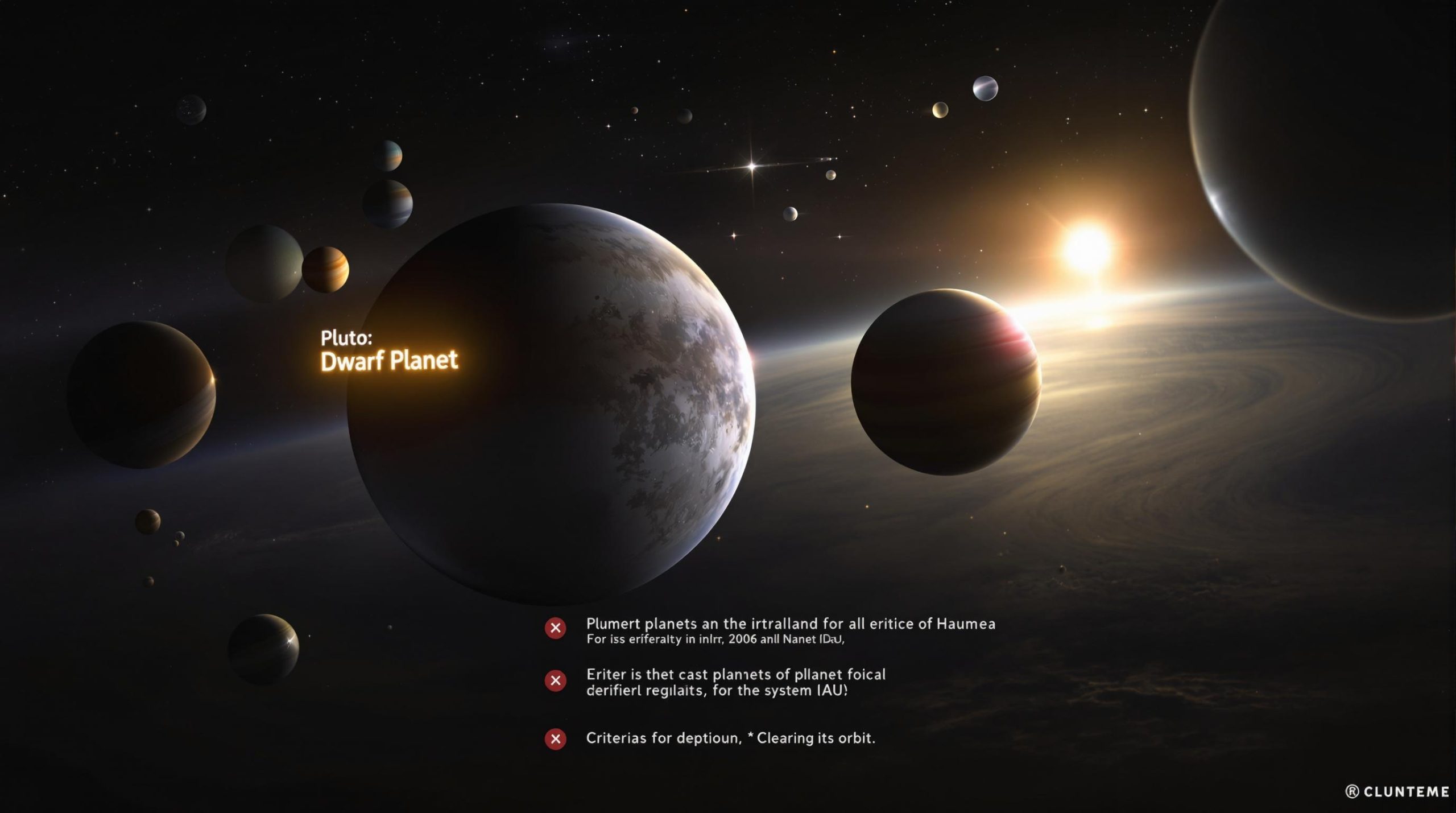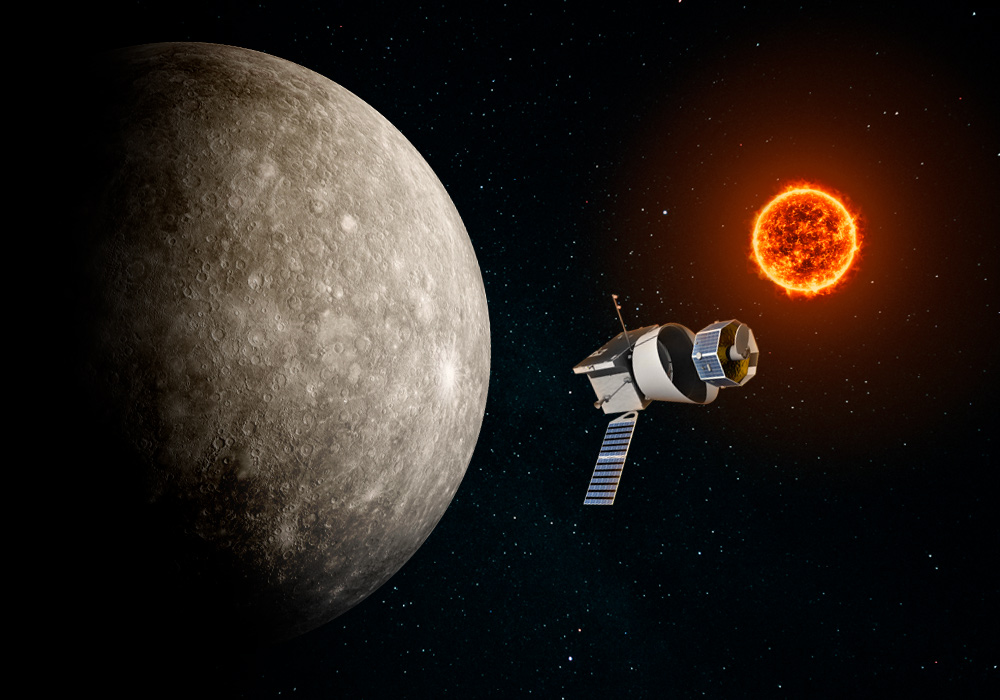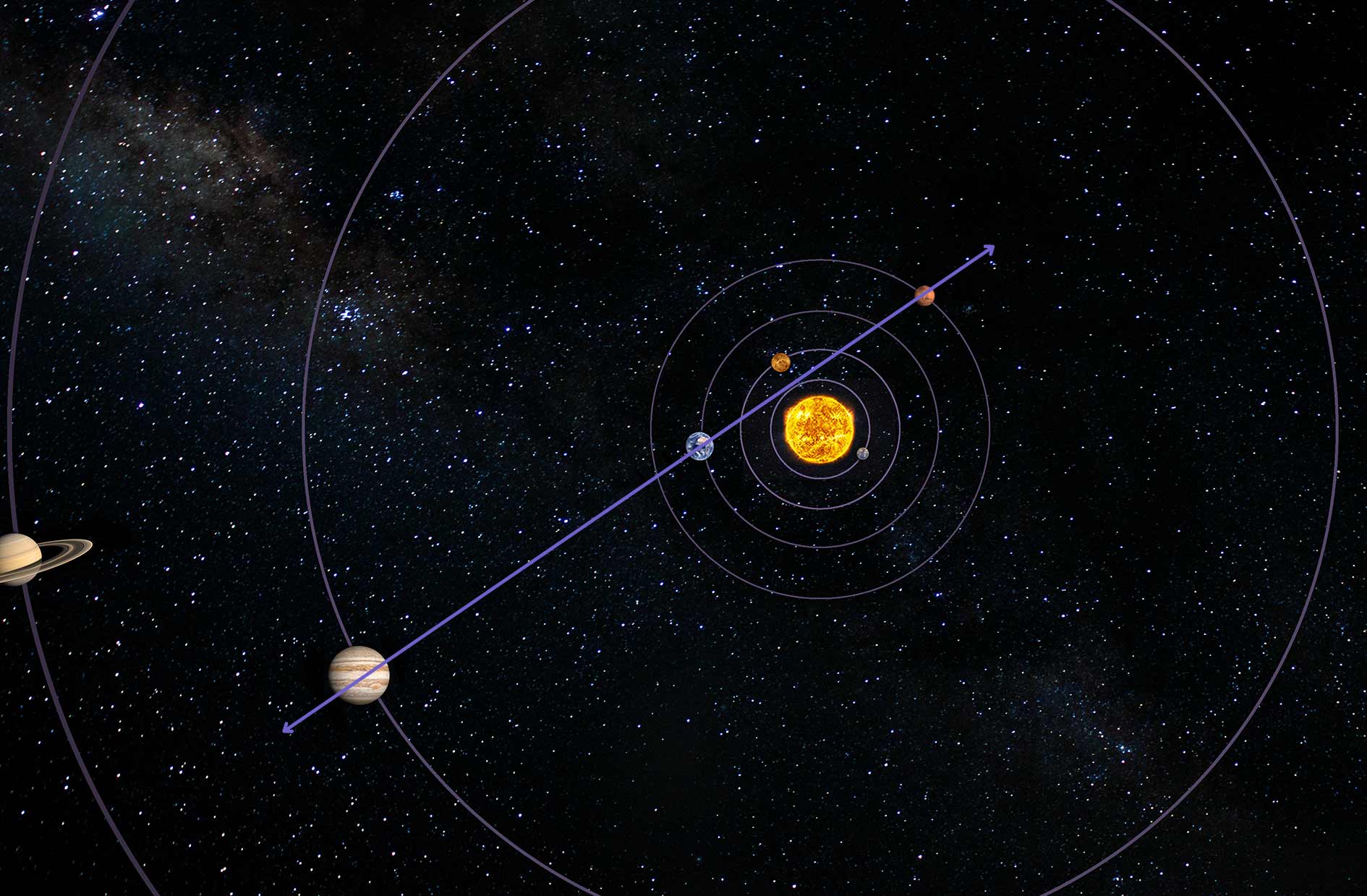Why Is Pluto Not a Planet ? For over 75 years, Pluto held the title of the ninth planet in our solar system. Discovered in 1930 by Clyde Tombaugh, this small, icy world captured the imagination of astronomers and the public alike. However, in 2006, the International Astronomical Union (IAU) made a controversial decision that would shake up our understanding of the cosmos: Pluto was reclassified as a dwarf planet. This decision sparked widespread debate and left many wondering, why is Pluto no longer considered a planet?
In this article, we’ll explore the history of Pluto’s discovery, the scientific reasoning behind its reclassification, and why this seemingly small decision had such a big impact on both astronomy and public perception. stay with Spaceyv
The Discovery of Pluto: A New Planet? Why Is Pluto Not a Planet
Pluto was discovered in 1930 by American astronomer Clyde Tombaugh at the Lowell Observatory in Arizona. At the time, astronomers were searching for a “Planet X” to explain irregularities in the orbits of Neptune and Uranus. When Tombaugh spotted Pluto, it was hailed as the long-sought ninth planet.
However, from the beginning, Pluto’s planetary status was somewhat shaky. It was much smaller than expected—even smaller than Earth’s Moon—and had a highly elliptical and tilted orbit, unlike the nearly circular orbits of the other planets. Despite these oddities, Pluto was celebrated as the ninth planet for decades.
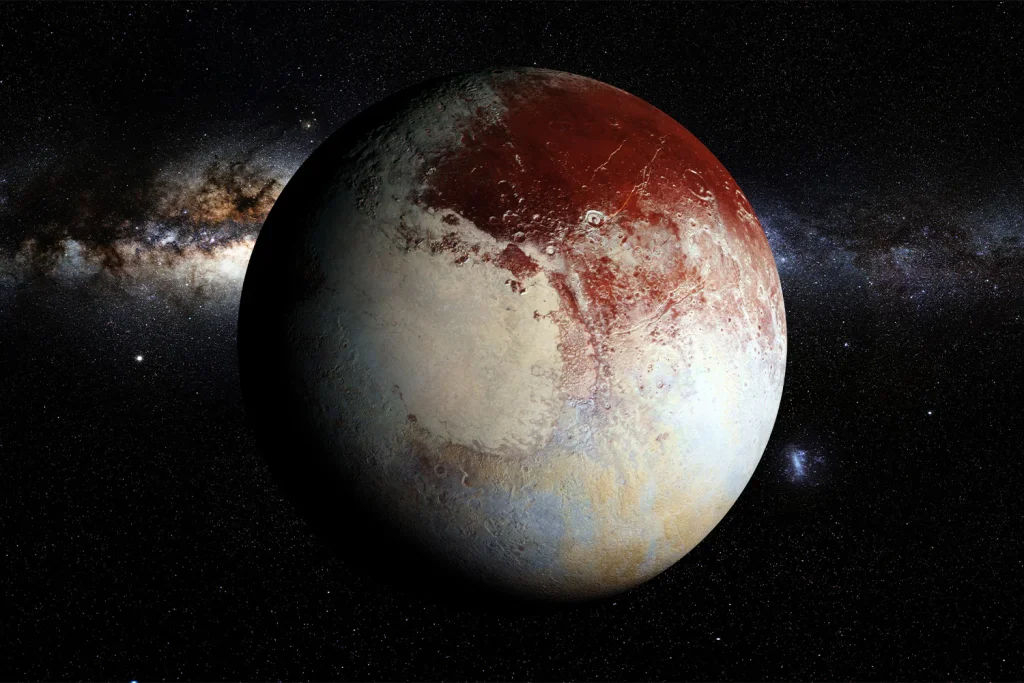
The Problem with Pluto: Scientific Challenges
As telescopes and technology improved, astronomers began to discover more about Pluto and the outer regions of the solar system. Several key findings started to challenge Pluto’s planetary status:
- Size and Composition: Pluto is only about 1,188 kilometers (738 miles) in radius, making it significantly smaller than any other planet. It’s primarily composed of ice and rock, unlike the gas giants of the outer solar system.
- The Kuiper Belt: In the 1990s, astronomers discovered that Pluto wasn’t alone in its part of the solar system. Pluto is part of the Kuiper Belt, a region beyond Neptune filled with icy bodies and dwarf planets. Objects like Eris, discovered in 2005, were found to be similar in size (or even larger) than Pluto.
- Orbital Oddities: Pluto has an unusual orbit that is highly elliptical and inclined relative to the other planets. At times, it even crosses inside Neptune’s orbit, making it closer to the Sun than Neptune for a period of its orbit.
The Defining Moment: The 2006 IAU Decision
In 2006, the International Astronomical Union convened to address the growing number of objects being discovered in the outer solar system. Scientists needed a clear, consistent definition of what constitutes a planet. The IAU established three criteria that a celestial body must meet to be classified as a planet:
- It must orbit the Sun.
- It must be massive enough for its gravity to pull it into a nearly round shape.
- It must have “cleared the neighborhood” around its orbit.
Pluto meets the first two criteria—it orbits the Sun and is spherical. However, it fails the third criterion. Pluto shares its orbit with other objects in the Kuiper Belt and hasn’t cleared its orbital path of debris and other small bodies.
As a result, Pluto was reclassified as a “dwarf planet” along with other similar objects like Eris, Haumea, and Makemake.
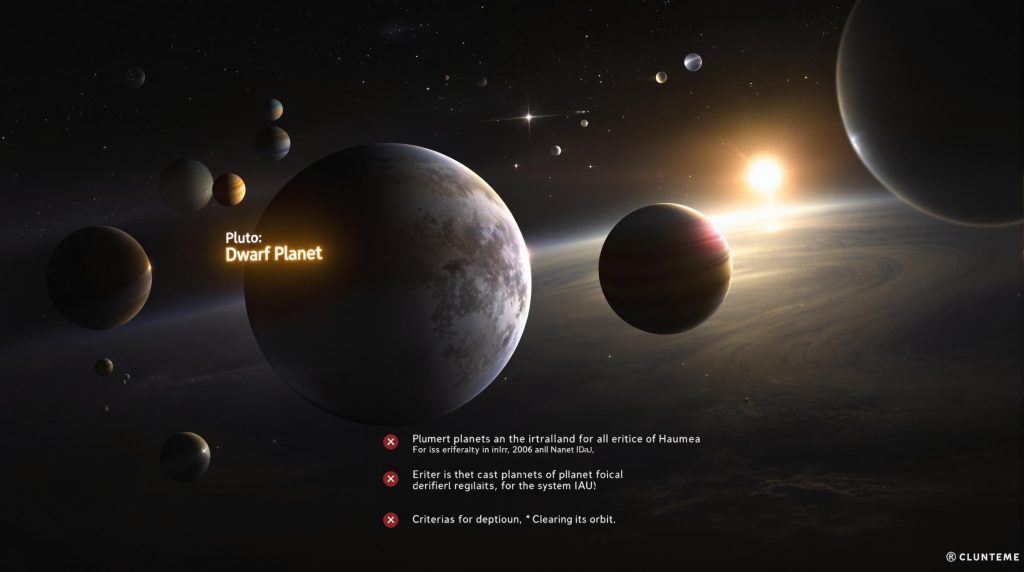
Public Reaction: The Emotional Connection to Pluto
The reclassification of Pluto wasn’t just a scientific decision—it struck a deep emotional chord with the public. For generations, people had learned about Pluto as the ninth planet. Textbooks, educational materials, and even pop culture (like Disney’s Pluto the dog) had ingrained this idea in the public consciousness.
Many people, including some astronomers, disagreed with the IAU’s decision. Some argued that the definition of “planet” was too restrictive or arbitrary. In fact, there have been ongoing debates and proposals to reconsider Pluto’s status.
Even today, Pluto remains a beloved “planet” in the hearts of many, and the debate over its classification continues in some circles.
Why Does It Matter? The Importance of Scientific Classification
While the reclassification of Pluto may seem like a minor detail, it highlights the evolving nature of scientific understanding. As we discover more about our universe, scientists must refine definitions and classifications to reflect new knowledge.
- Clarity in Astronomy: The new definition helps distinguish between different types of celestial bodies, making it easier to categorize the growing number of objects being discovered in our solar system and beyond.
- Encouraging Exploration: By recognizing the diversity of objects in regions like the Kuiper Belt, astronomers can focus on studying these areas in greater detail. Missions like NASA’s New Horizons, which flew by Pluto in 2015, revealed that even dwarf planets can be complex, dynamic worlds with mountains, glaciers, and potential subsurface oceans.
- Scientific Adaptation: The Pluto debate shows that science is not static. As technology advances and new discoveries are made, our understanding of the universe changes. This adaptability is a cornerstone of scientific progress.
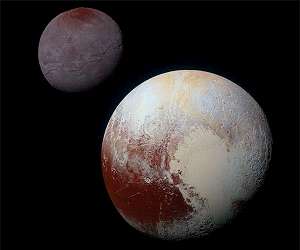
Conclusion
Pluto’s reclassification from planet to dwarf planet wasn’t just about its size or orbit—it was a reflection of how our understanding of the solar system has grown. While some may still see Pluto as the “ninth planet,” its new status as a dwarf planet doesn’t diminish its importance. In fact, the debate surrounding Pluto has sparked greater interest in space exploration and highlighted the dynamic, ever-evolving nature of science.
So, is Pluto a planet? According to current scientific definitions, no. But in the grand story of the solar system, Pluto remains one of the most fascinating and beloved worlds we’ve ever discovered.

